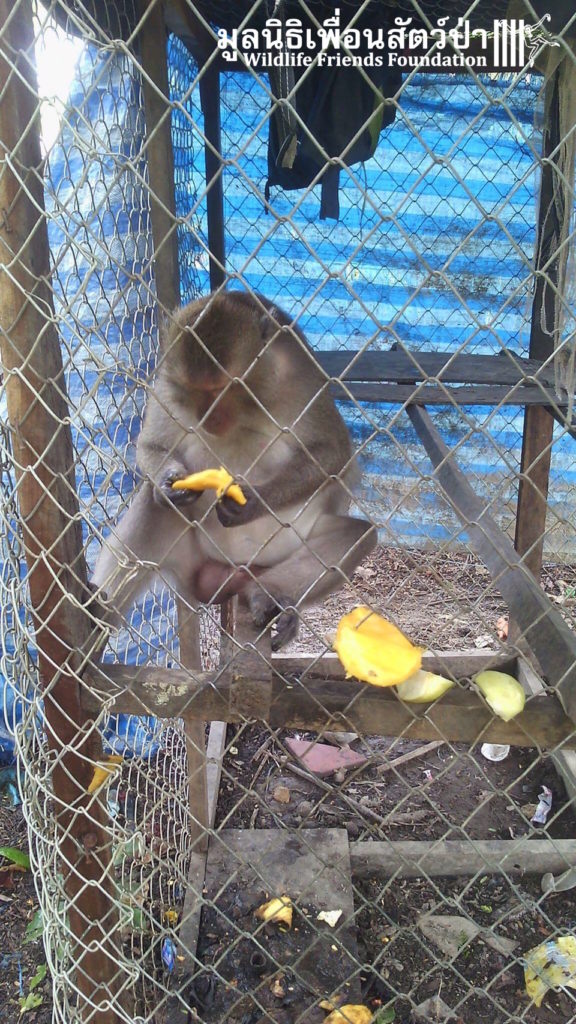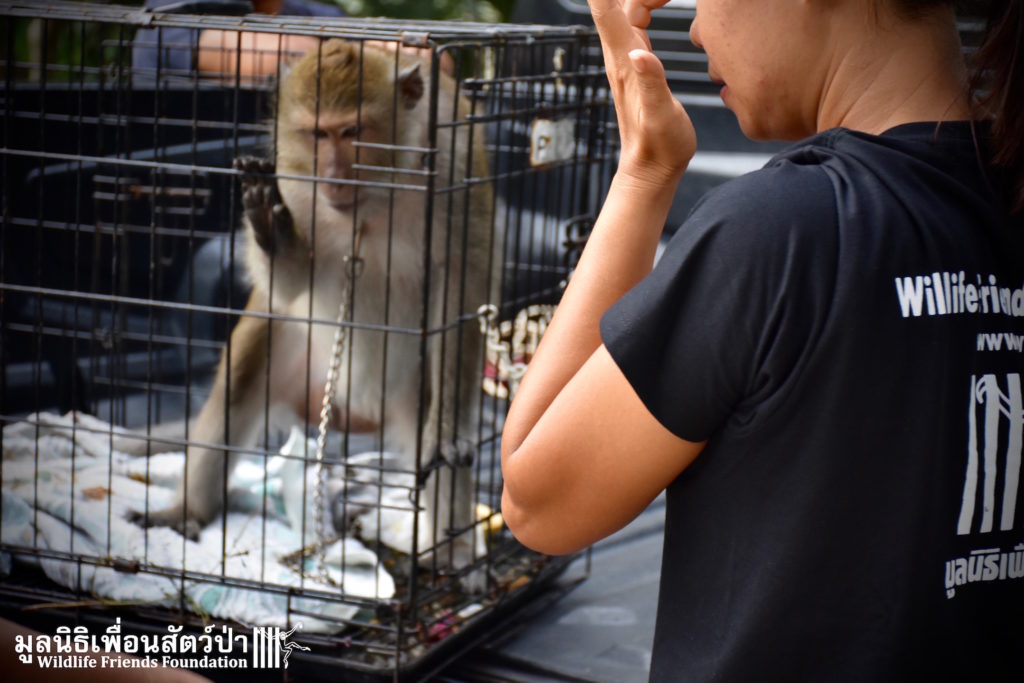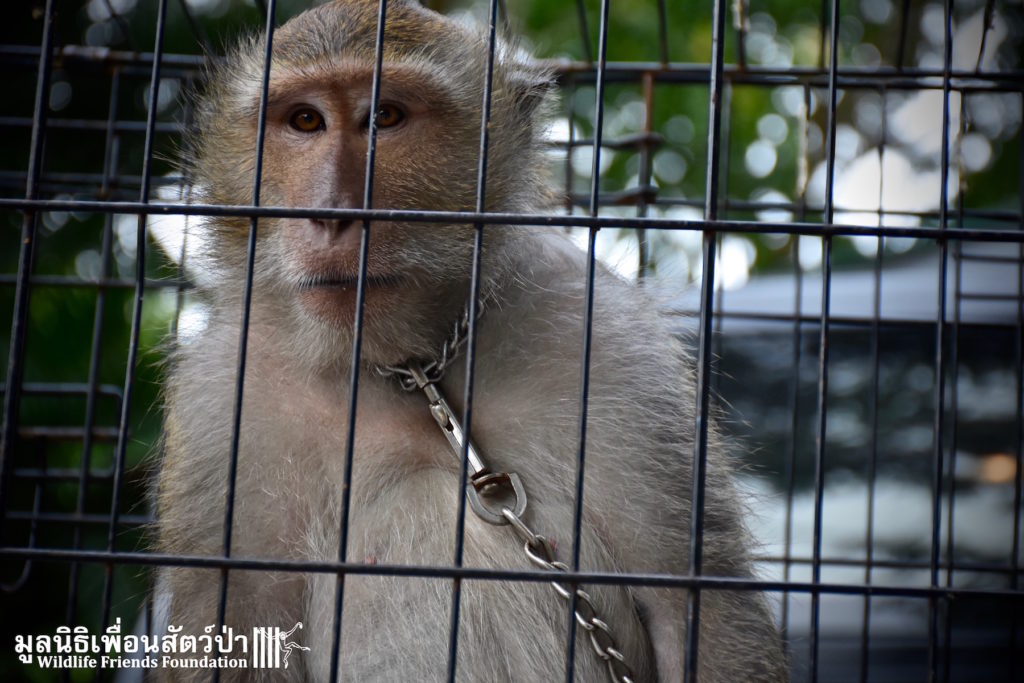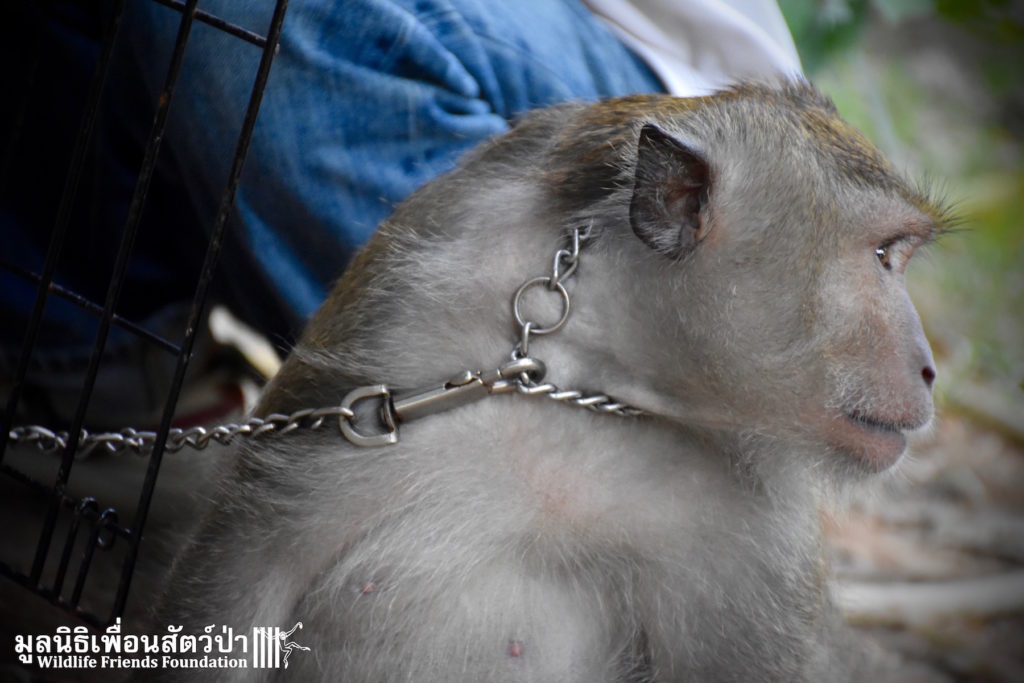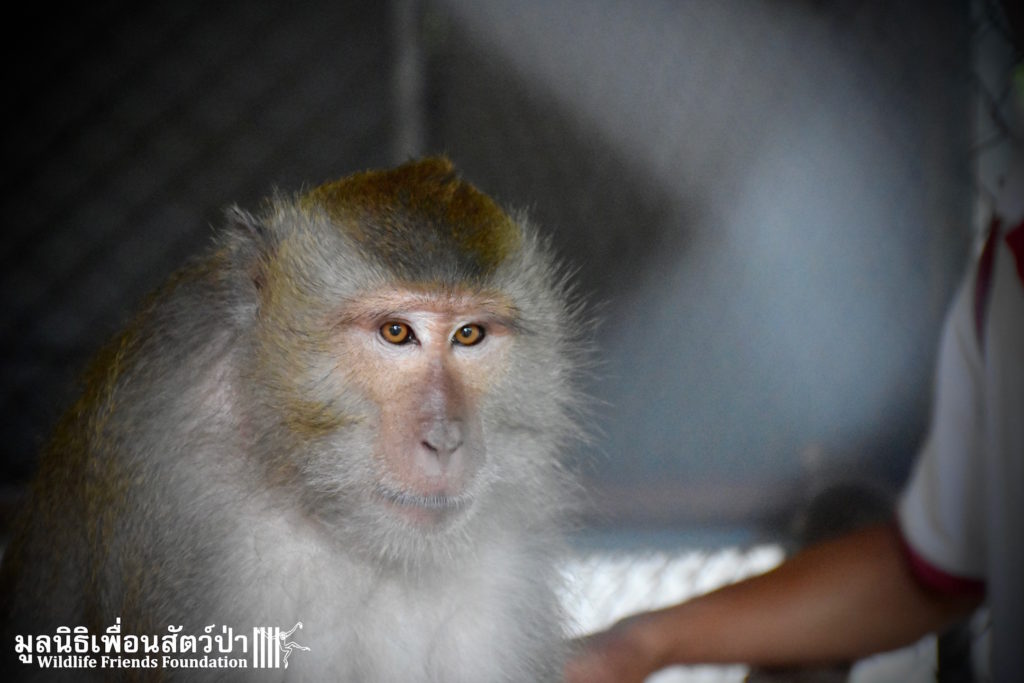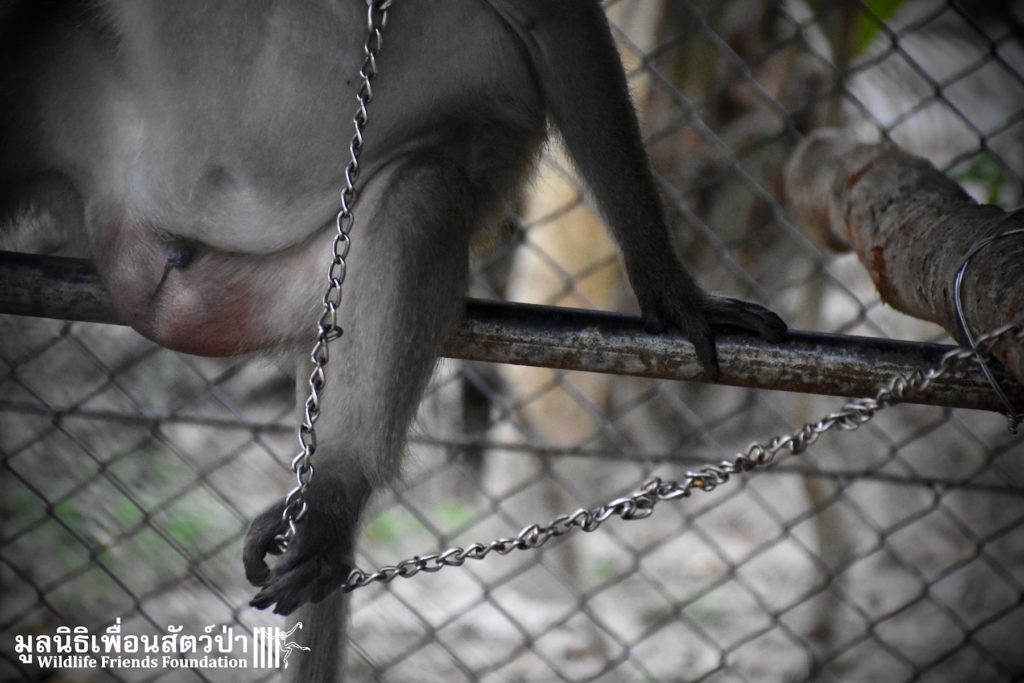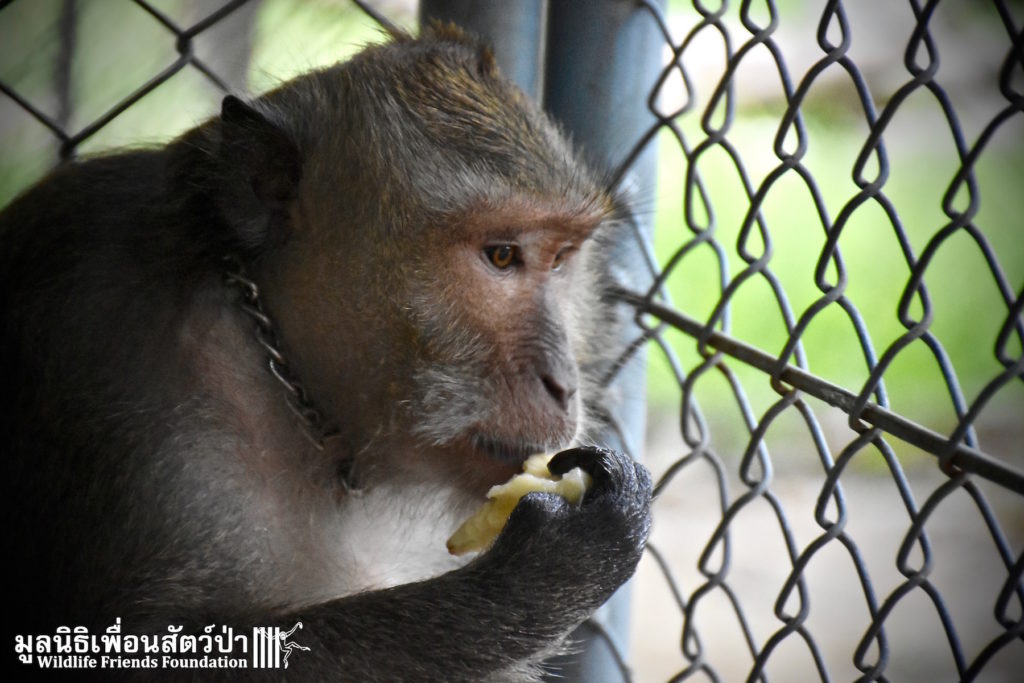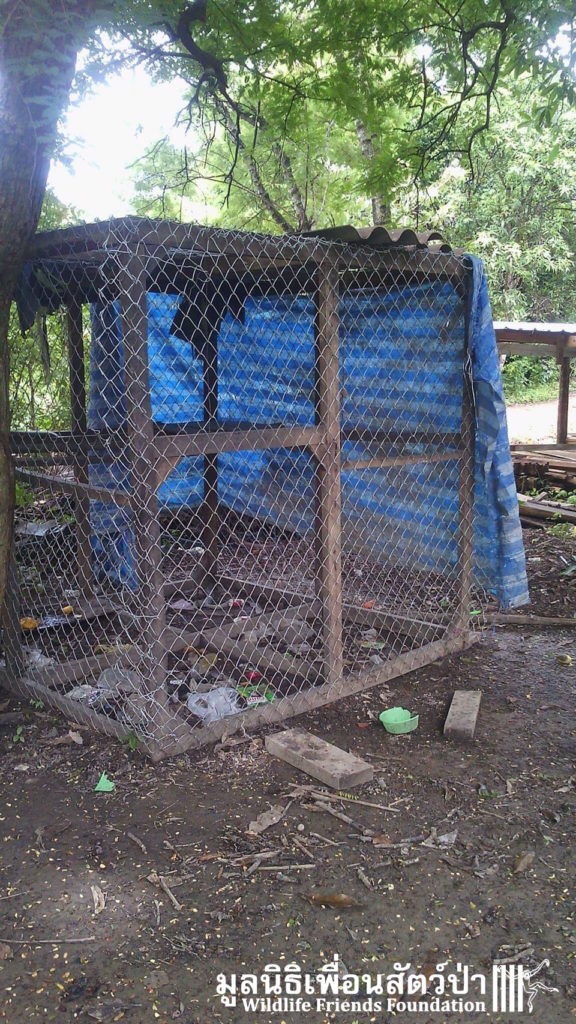A big step forward! An MOU has been signed with the coconut industry and authorities to phase out monkey labour and exploitation in coconut harvesting.
In Chains No More – WFFT Welcomes Warnorn
Warnorn the five-year-old male long-tailed macaque (Macaca fascicularis) is free from chains after spending the first five years of his life with humans after his mother was butchered and eaten. Warnorn was found in March 2011 on an island in southern Thailand when he was a young baby. We are told that an alcoholic man killed Warnorn’s mother and ate her. Warnorn was taken into the care of a local family after they found that the man that had killed his mother was keeping him. As Warnorn grew he became aggressive and needed to be kept locked in a cage, this further reduced his quality of life. He recently escaped from his cage, then attacked and injured someone. It is not uncommon for strong frustrated wild animals to retaliate after years in captivity. The people in the village near to where Warnorn was being kept threatened to release into the forest or kill him. His owners than contacted us to help before irresponsible actions were taken.
The long-tailed macaque is listed as Least Concern (LC) by the IUCN Red list of Threatened Species, in view of its wide distribution, presumed large population, tolerance of a broad range of habitats, occurrence in a number of protected areas. Although it is under heavy hunting pressure for the pet trade, meat, sport and trophies, this is not considered a major threat to the species overall. Females are often taken into breeding facilities and males are exported internationally primarily for use in laboratory research. They are regularly persecuted as pests. Habitat loss is also a localised threat, but the species can persist in a variety of habitats and very adaptable.
Warnorn will spend a period of time in quarantine before being introduced to other conspecifics. We hope in the future to introduce him to one of the macaque troops in a large open field here at the WFFT Wildlife Rescue Centre. Warnorn’s owners initially had the right intentions by rescuing him but wild animals do not make good pets and can become aggressive and dangerous. Keep Wildlife Wild and Not and Pets.

